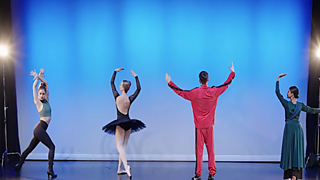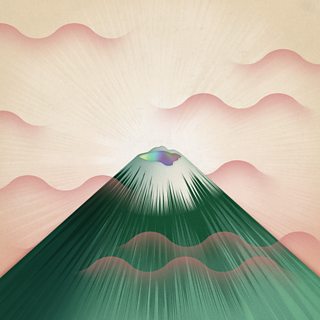- Try
- Rate
- Share
How did you rate this?

The Inside Story
The Garden was created by Ben Samuels at Limbik Theatre as part of Alternarratives, a Nesta led programme to help writers explore innovation in short-form storytelling. Nesta are collaborating with 大象传媒 Taster to help test the experiences - please view, rate and give us your feedback above.
Who are you?
I work in theatre, as director, writer and performer. With my production company Limbik, our work always begins with a story. When we create a new show, there is always a moment when someone sits down to write out the story that we want to tell. I wrote a lot of short-stories when I was younger, so this "treatment" phase of creating a new show feels very intuitive. With The Garden, it was a real pleasure to return to writing fiction, knowing the audience would engage with the story through the act of reading and listening.
How did you make it?
The beautiful thing about approaching immersive technology from a theatre background is that the technology fundamentally refers to space. Space is a partner. In ambisonic, spatial audio, you see space in your mind when you listen. And working with a sense of imagined space is very much at the heart of what we do in theatre. In The Garden, words themselves, in a way, become the actors.
Words and sentences journey across the space of the screen as you read. They appear and disappear—sometimes dramatically, sometimes they linger and fade away. But they always occupy a specific space on-screen at specific moments in time, tied to the narrative. All of this is supported by soundscape and soundtrack. In terms of soundscape, we were working with this idea, again from theatre, of “completing the image.” I come from a background in physical theatre, where we really try and focus on using a few simple devices—simple props, a suggestion of costume, sound and light— to create a complex imaginative experience for the audience.
We were playing a similar game with The Garden. Working with our sound engineer, the amazing Henrik Oppermann and his company Schallgeber, we were exploring how we can combine and contrast words and sound, so one picks up where the other leaves off, allowing the reader themselves to see, hear, and feel themselves in the middle of this story.
Music is key to this, and Rob Wicks did a brilliant job capturing the atmosphere and emotional journey of the story. Rob works in musical theatre, as a composer and musical director, so he knows from the inside how music conveys narrative. I have my own experience directing musicals, which can be a joy because the music basically tells you what to do.
At the end of all the late nights of trial and error, the feeling of having developed something from scratch is really special. It’s a similar feeling to directing a show. You sit back and see the result, and you know, intimately, the process that got you there. You can see it reflected.
More about Alternarratives
Nesta ran an open call for bold, creative ideas that explore new ways to tell a story and push the boundary of how we consume literature and engage 13-16 year olds with reading. This was a chance for writers to consider the future of storytelling and make use of new technologies or formats.
Nesta provided with bursaries and bespoke support to make their ideas a reality - now we need your help to pick a winner. 大象传媒 Taster and Nesta are asking the public to test, rate and provide feedback on the live projects.
Anyone can view them and have your say on who wins, but we’re specifically encouraging 13-16 year olds to tell us how they engaged with the works. We will view the public feedback with an to help select the final winner.
.



